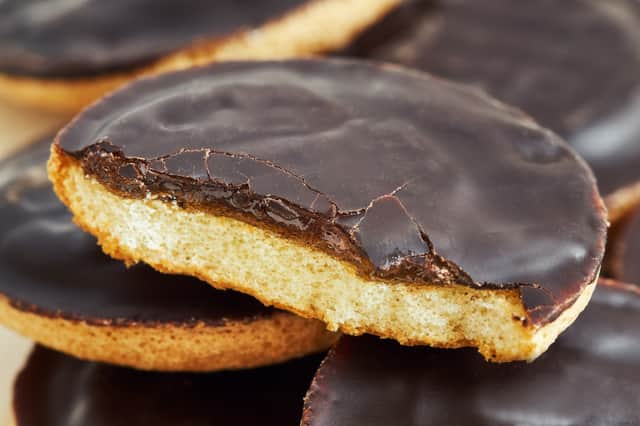Is a Jaffa Cake a cake or a biscuit? Here’s the definitive answer - as decided by a court


It's an age old question: is a Jaffa Cake really a biscuit or a cake?
Found in the centre of heated debates for years, there are those who believe firmly in the biscuit camp, others staunchly in the cake camp and those caught in the middle who don’t know what to think.
Advertisement
Hide AdAdvertisement
Hide AdThis is everything you need to know about whether a Jaffa Cake is actually a cake or a biscuit - and what happened when the discussion actually went to court.
The case for being a biscuit
Those who believe Jaffa Cakes are actually biscuits argue that the McVitie’s products are always found in the biscuit aisle in shops - not the cake aisle.
They’re packaged the same as biscuits, advertised in the same way as biscuits and are the size of traditional biscuits, rather than cakes.
Cakes also tend to be eaten with a fork, whereas biscuits are eaten by hand - as are Jaffa Cakes.
The case for being a cake
Advertisement
Hide AdAdvertisement
Hide AdOn the flip side, the case for being a cake also holds a variety of persuading arguments.
Biscuits are expected to have a crisp texture and they should snap in half, whereas cakes have a softer and more tearable texture - much like Jaffa Cakes.
Jaffa Cakes also possess the same ingredients as a traditional sponge cake - egg, flour and sugar that’s been aerated. Jaffa Cakes therefore have a thin cake batter alongside the chocolate and orange jelly, instead of the thicker dough that would be used in biscuits.
Similarly, when cakes are left to go stale, they harden. When biscuits are left to go stale, they go the opposite way and get soft. Jaffa Cakes go hard.
Advertisement
Hide AdAdvertisement
Hide AdIn response to the question, one Twitter user said, “Jaffa Cakes are cakes! If they were biscuits they’d be called Jaffa Biscuits.”
Even McVitie’s, the brand that owns Jaffa Cakes, tweeted saying, “Cake all the way!”
The legal definition
Believe it or not, the question of whether Jaffa Cakes are cakes or biscuits actually became a matter for the courts to decide.
In the UK, value added tax is payable on chocolate covered biscuits - but not chocolate covered cakes. McVitie’s classified Jaffa Cakes as cakes, and in 1991 had to defend this categorisation in a VAT tribunal.
Advertisement
Hide AdAdvertisement
Hide AdThe government explains, “Customs and Excise had accepted since the start of VAT that Jaffa Cakes were zero-rated as cakes, but always had misgivings about whether this was correct.
“Following a review, the department reversed its view of the liability. Jaffa Cakes were then ruled to be biscuits partly covered in chocolate.”
At this point, McVitie’s appealed against this decision, prompting the VAT tribunal.
Jaffa Cakes were assessed using the following criteria during the tribunal:
Advertisement
Hide AdAdvertisement
Hide AdThe product’s nameThe ingredientsThe product’s textureThe texture of the product when it goes staleThe structure of the productThe size of the productHow the product is sold in shopsHow the product is marketed
The court found in favour of McVitie’s and stated that, legally, Jaffa Cakes are considered a cake, which means that McVitie’s doesn’t have to pay VAT on Jaffa Cakes in the UK.
The Irish Revenue Commissioners also ruled in favour of Jaffa Cakes being cakes due to the fact that their moisture content is greater than 12 per cent.